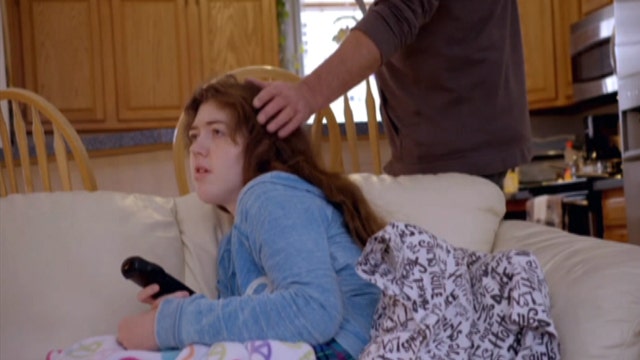PBS doc sheds light on epilepsy
Peter Schnall is the producer of ‘Seized: Inside the Mystery of Epilepsy,’ a film that hopes to raise awareness about this life-changing condition and some controversial treatments. Schnall joins Dr. Manny to talk about the film with his wife Amy who has epilepsy herself
When she was 13, Amy Moritz was diagnosed with epilepsy. Now 48, she’d gone ten years without a seizure and considers herself “one of the lucky ones,” but isn’t letting her good fortune stop her activism for epilepsy awareness. Now, her partner, Peter Schnall, has focused his latest documentary on sharing the story of those with epilepsy to help remove the stigma.
“Seized: Inside the Mystery of Epilepsy,” debuted on PBS in May. Schnall, a seven-time Emmy Award-winning film director and producer, followed four individuals and their families as they navigate their way through the complexities of epilepsy and try controversial treatments.
More than five million Americans have a history of epilepsy, a neurological disorder that is characterized by unpredictable seizures. To be diagnosed with the disorder, an individual has to have had two unprovoked seizures, according to the Mayo Clinic.
Ouida Foster of Boston, is one patient featured in the documentary. The young mom underwent a radical surgery with the hopes that it would alleviate her symptoms. She had a smart device implanted in her brain to detect and control seizures by sending electrical impulses to the parts of the brain that were being impacted by the disease.
Over the past six months, Foster hasn’t seen a major reduction in the seizures, but has felt comfort and more ease in her daily life, Schnall told FoxNews.com.
Caitlin Dunne, 26, and Lili Gilmore, 13, have suffered from severe seizures since they were infants and are both part of a study conducted by Dr. Orrin Devinsky, director of NYU Langone Epilepsy Center. Both women are featured in “Seized.”
Davinsky is experimenting with the effects of cannabidoil, an extract from medical marijuana, on those who suffer from epilepsy.
“Dr. Devinksy found that of the patients that were originally part of the program, about 50 percent of them showed some sign of less seizures that they have been having in their normal, daily life,” Schnall said.
Dunne, for example, saw shorter, less intense and more infrequent seizures.
In addition to highlighting unorthodox treatments, “Seized” raises questions about the causes of epilepsy, especially cases where the symptoms are seen later in life.
Army veteran Andy Ford served in Afghanistan and now suffers from post-traumatic epilepsy. His symptoms are unique in that he loses consciousness and experiences sudden bouts of violence— the ambulance and law enforcement were called to manage his first seizure and he woke up handcuffed to a hospital bed.
Ford and his doctors believe his epilepsy was caused by a blast that he sustained while in combat. Researchers are looking at his case with the hopes of finding out what causes this sort of epilepsy for those who suffer a violent incident, such as a wartime blast.
Two months before “Seized” was released, Moritz’s luck ran out when suffered six seizures in one night. Her relapse strengthened her resolve that the documentary will raise awareness and one day lead to a cure.
For more information, click here.








































